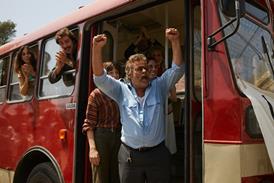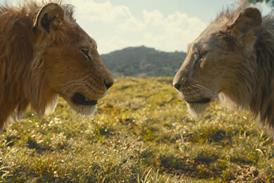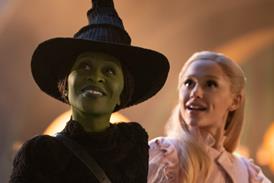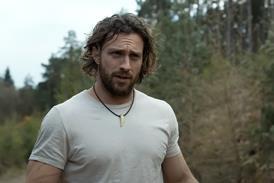As one of the last country's to submit its Oscar entry Bulgaria's submission for next year's Academy Awards is a Bulgarian-Macedonian co-production, Warming Yesterday's Lunch ('Podgryavane Na Vcherashniya Obed).
Based on a script written by Mile Nedelkovski from the book of the same name, the film was directed by Bulgarian documentary film maker Kostadin Bonev with Konstantin Zankov acting as cinematographer. The film was produced by Sofia-based Gala Film and Skopje-based Digit Prop, with the assistance of the Bulgarian National Film Center, the Ministry of Culture of Macedonia, BNT and the Boyana Film Studio.
The film is set high in the mountains of Macedonia where a team of young film makers are making a documentary about Katerina Vandeva - a descendant of an ancient Komita family. Several former state and party functionaries interfere in their work in the aims of using Katerina's confessions for their own purposes. Nikola, the director, and his friends have to make the choice - whether to make the compromise with their consciences, as normally happens here in the Balkans, or whether to preserve Katerina's message.
The film that interweaves reality with magic and mysticism and is the director's feature film debut was highly praised at this year's Bulgarian National Film Festival in Varna taking four awards, including the Special Award of the Jury and the Best Script Award. The film's two main actresses who play the same character at different ages, Svetlana Yancheva and Bilyana Kazakova, won the Best Actress Award and the Best Young Actress Award, respectively.
Meanwhile, in Switzerland, the Federal Office of Cultural Affairs by recommendation of a federal film jury has submitted Aime Ton Pere to be considered for the 2003 Academy Awards for Best Foreign Language Film.
Aime Ton Pere is a French-Canadian-British-Swiss co-production realised through Vega Film AG, Zurich. Actor Gerard Depardieu has the lead role as the father with Guillaume Depardieu as his son Paul. The film premiered in Swiss cinemas on October 24, 2002.
With a budget of over eight million Swiss francs, the film received support from the Federal Office for Cultural Affairs as well as from Télévision Suisse Romande, Fonds Régio, GMT Productions, DD Productions, Rhône-Alpes Cinéma, France 3 Cinéma, Canal+, and Telefilm Canada.
As reported yesterday, Italy has chosen Roberto Benigni's Pinocchio as its candidate for the Foreign Academy Award, in the hope of replicating the Tuscan comic's tour de force at the 1999 Oscars.
Benigni's fairy-tale, which is poised to receive an all-out promotion campaign from its US distributor Miramax, beat out competition from Emanuele Crialese's Respiro and Marco Bellocchio's Hour Of Religion - although both films had been regarded as outsiders for the nomination.
"I am pleased I was shortlisted with two films that are as beautiful and the fact that I won makes me want to jump for joy," Benigni said during a conference call after the nomination was announced.
"I would like to thank the jury, the public and Cecchi Gori, who would be the first producer to receive an Oscar while under house arrest," Benigni said of the fallen producer, whose company originally backed the picture and has jointly distributed it in Italy with Medusa.
Asked whether he would jump up and down if he won the Oscar like he did four years ago, Benigni replied: "This time, I'll jump out of the plane."
Italy's Oscar selection committee is formed by a massive 380 jurors, the same group who vote for Italy's top film award, the Donatellos.
Next week Benigni will travel to the US to promote Pinocchio's Dec.25 release, when American audiences will be able to enjoy a dubbed version of the film.
But the US version will not be dubbed by Benigni as had originally been planned. While he had started dubbing his own voice in English, the comic said he was not satisfied with the result. It is not yet known who will now dub his voice.


















No comments yet